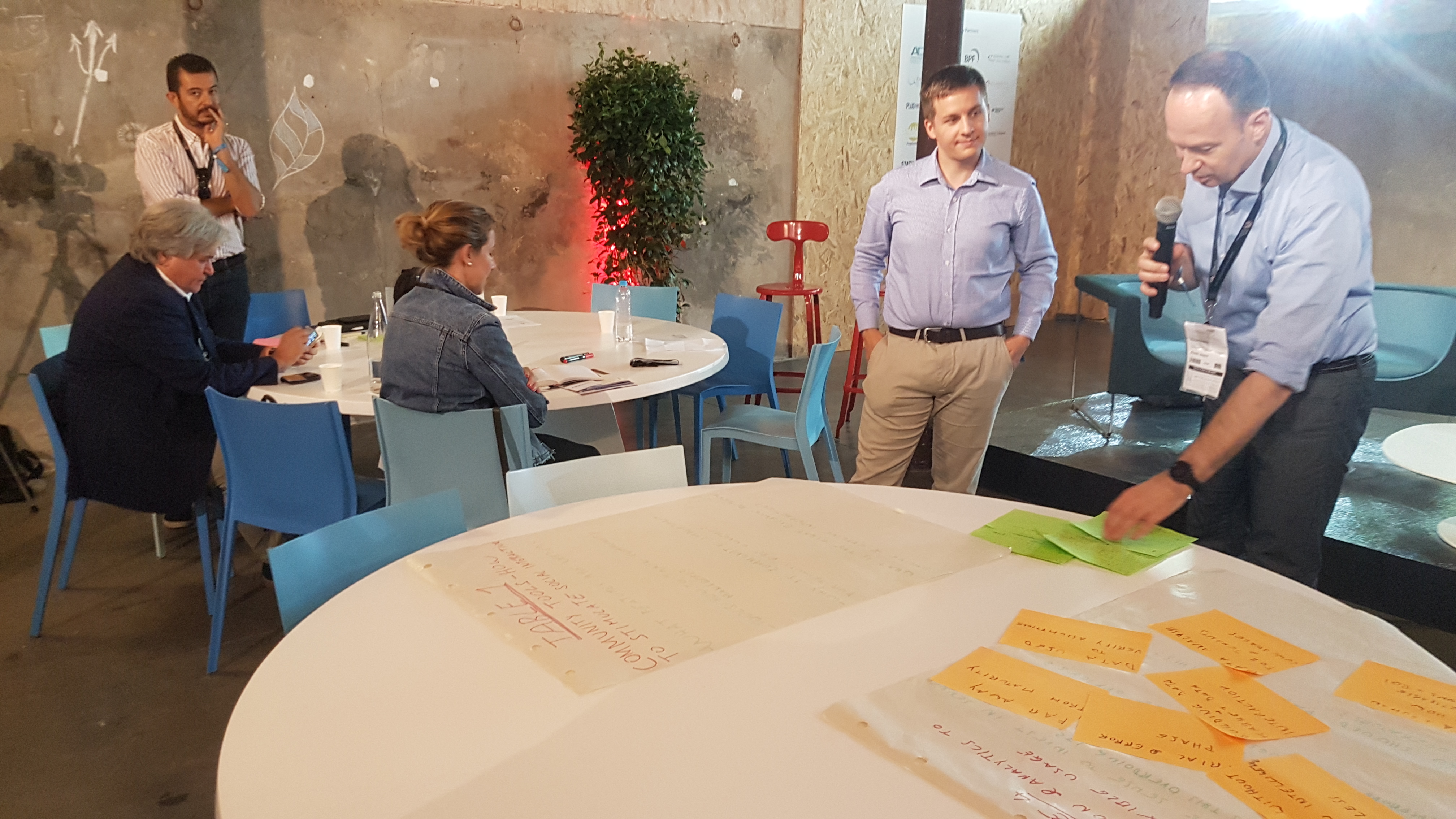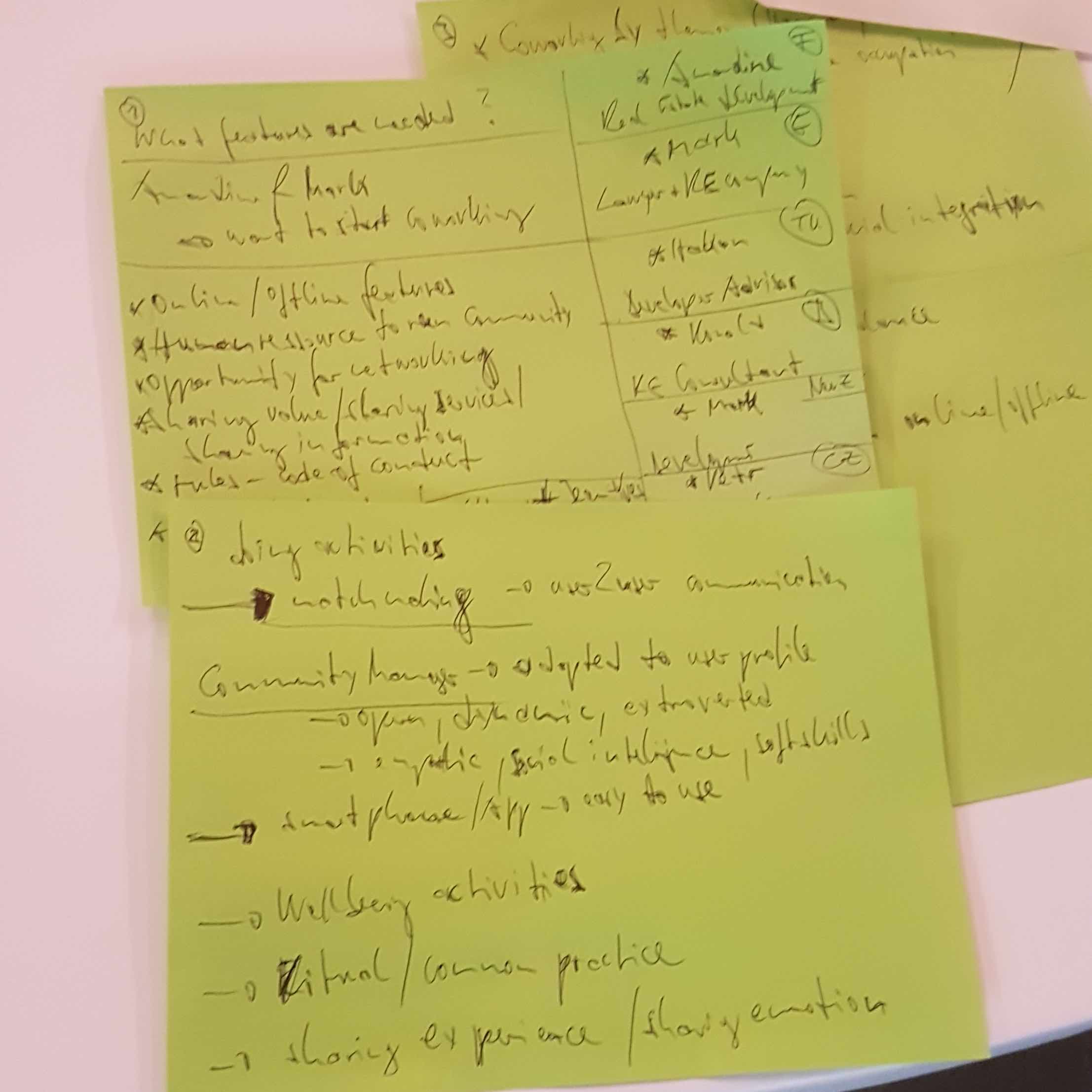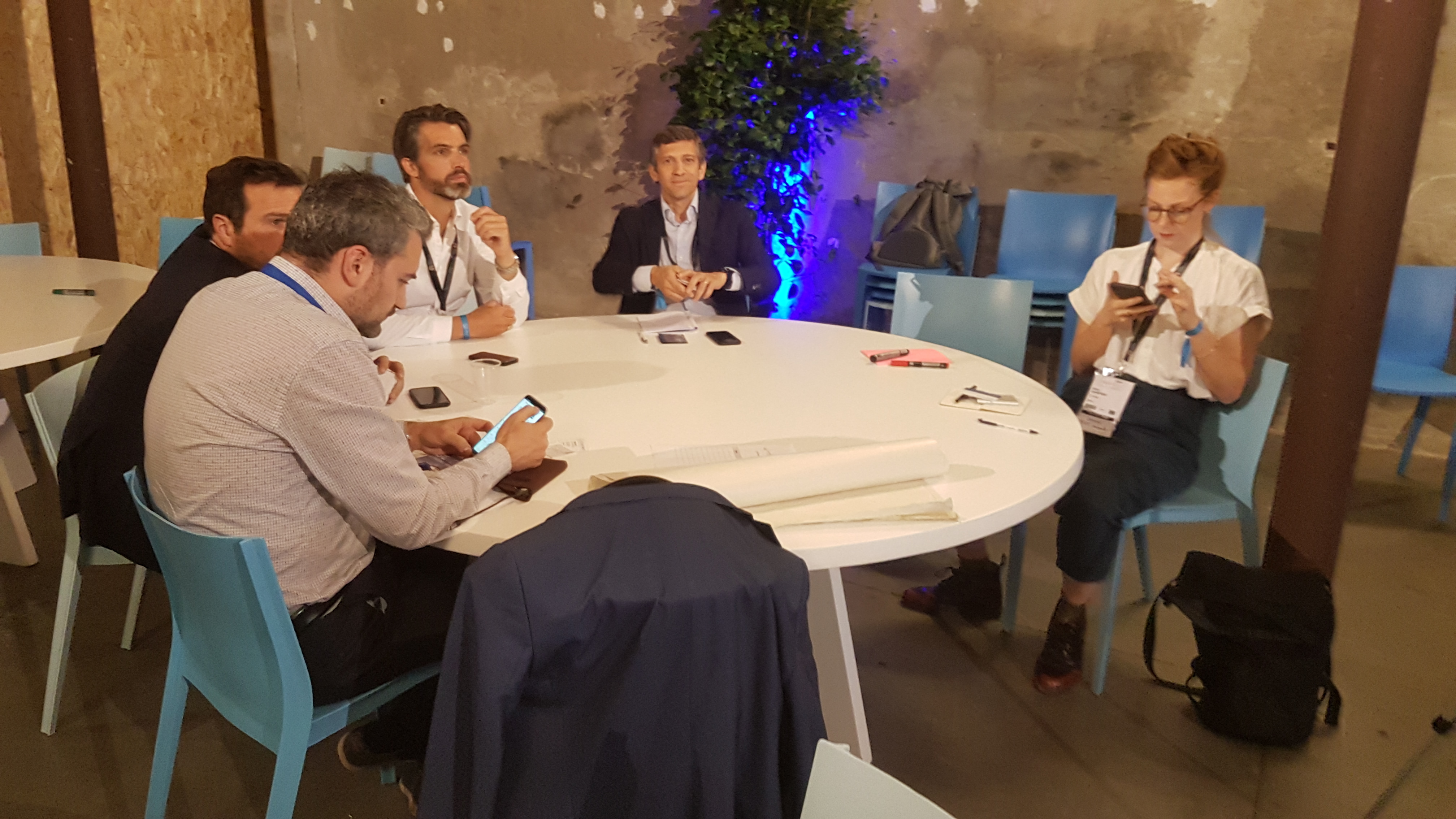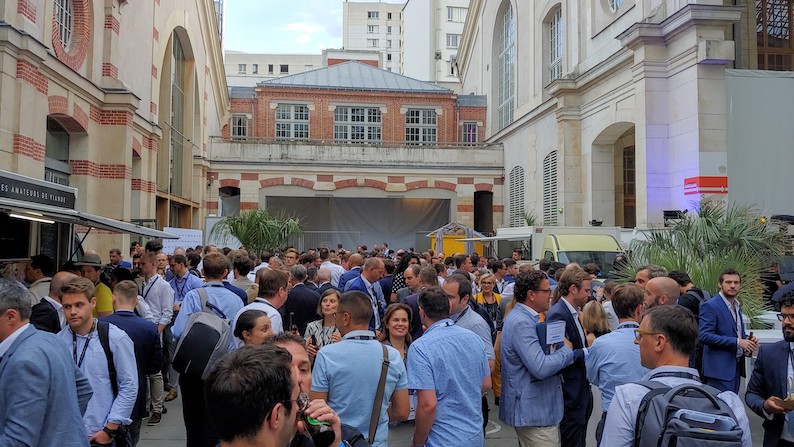SocialWorkplaces.com, organizer of the Coworking Europe conference, was invited by Mipim PropTech Europe 2019 to organize a unconference during this month conference in Paris. During two sessions of 1 hour each, we organized discussions with close to 40 participants. 
Prior to the event, delegates had the opportunity to suggest topics they wanted to be discussed. Participants proposed to cover areas such as community management, members flow data analysis, profitability or the integration of new IoT devices or software, in order to optimize space operations.
One very hot topic among others was about coworking expansion and internationalisation. In the conversation group, representatives from a major Italian multi-location coworking brand, from a Spanish Fintech ecosystem, from a Paris based design studio, from a very influential German Real Property company, from a IoT startup, as well as an architect and a space manager from Turkey, to list a few.
Here are some of the inputs and takeaways shared by the participants during this animated Unconference conversations at Mipim PropTech Europe 2019 :
How about replicating a similar coworking model in different cities and countries?
- “Some big international brands behave like McDonalds. However, in coworking, you need to adapt your positioning and service to the local taste and realities. It’s not always one size fits all.”
- “The way you design a space is influenced by the culture of the the country you are in.”

- “You need to know local markets. For instance, we made an important move to the Benelux, a few years ago, where we opened a coworking location. It was quite hard. The brand wasn’t known and we have been through a number of cultural differences that we had to learn and deal with. (…) Nowadays, our strategy is to make our position stronger, first, in our home country before moving abroad.”
- “As a coworking space, you have to strike local partnerships. Outside of our home city, in other Italy regions, we hire local people. You have to deal with differences in approaches, tastes, even accents, according to where in the country you are based.”
- “Wherever you are located, you have to give back to the local community”
- “Address local markets with specific approaches is also a matter of legal differences. Lease contracts are different in Belgium, France, or other European countries. The legislation on virtual offices differs too.”
Local coworking operators vs big international brands expanding everywhere. Who wins?
- “International expansion has to be driven by a strong, articulated, strategy. You see some well funded coworking players opening new locations regularly without a clear understanding of how to deliver value out of it. They are spreading out in different countries without a clear location and development strategy. They open up in San Francisco, in Germany, everywhere without a clear logic aside of being in some well reputated metros. From our Real Estate owner perspective, we prefer to deal with strong, well established local players.”

- “Another issue is that big international real estate brokerage firms are publishing nice reports about coworking. However, their local brokers have no idea about local coworking markets. This makes things more difficult for coworking players when they want to develop their multi-location strategy in a specific country.”
- “From the customer perspective, things might differ a bit. A small company will look for a small local coworking operator, in the beginning. Things might change once the company starts to grow. They might then start to look for a stronger coworking partner”
You see some well funded coworking players spreading out in different countries without a clear location and development strategy. They open up in San Francisco, in Germany, everywhere without a clear logic aside of being in some well reputated metros.
Thinking beyond “Instagram friendly” space layout and design?
- “How do you keep your ability to refresh you design without killing the costs? (…) Some famous international coworking brands invest most of their efforts in designing their “Instagram” friendly common areas, where everybody comes in and out. The offices itself is very much more standardized and less cozy, with much more classical furniture. (…) You can re-do all your lobby every 4-5 years. You can hold more than 10 years with the same outfit in the private offices. “
Coworking differenciation and specialization?
- “The differentiating factor will be the ecosystem you are in, and how you specialize yourself in it. Google Campus, in London, for instance, was among the first important coworking space to open in the UK capital, in the beginning of the decade. There were a lot of startups, there. But they were doing a lot of different things, and one rapidly acknowledged the lack of specialization which had an impact on the attractiveness of the space after a while for startup members.”
- “In our space, we focus a lot on drawing players coming from the FinTech industry. We developed a leveling approach (…)
 We did the same with a bank in Italy”
We did the same with a bank in Italy” - “Big international coworking brands, nowadays, strike deals with Headquarters of major companies located in the Silicon Valley. The goal is to create partnership on the global level, and promote their international network of locations”
- “There is room to propose different levels of offering depending on the different life cycles of companies.”
- “Big companies now look more about the facility management dimension those companies can provide them with. That being said, the situation is not always rosy. Some of them are frustrated to see that major coworking brands let real estate and facility management issues be handled by community manager who have no technical expertise or know nothing about real estate and building management matters.”
- “Small coworking spaces can’t alway afford to have in-house real estate and facility manager experts. So, big ones might have an advantage from that perspective.”
External growth vs organic growth strategy for flexible workplace operators ?
- “Some international players tend to grow through acquisitions of local players.”

- “Acquisition can be a hard way to go, because branding is critical in the coworking world. Switching to a new brand, a new image, a new approach, and paste a more standardized service and set of value on a local level out of the existing operation of a local coworking space is something very tricky and risky. External growth in coworking is sometimes closer to shaping up a conglomerate than to develop a seamless international service for standardized demands. True, the real agenda can also be to kill the local market, and expand later with a oligopoly service. However, this can turn into a dangerous strategy, because buying coworking spaces locally is not as simple as just buying local market shares… You are bringing in specificities, values, flavor, style…”
- “WeWork, on the other hand, rather grow organically, and is supported by a network of partners. Data collection and management has become an part of what they do.”
External growth in coworking is sometimes closer to shaping up a conglomerate than to develop a seamless international service for standardized demands.
Join us at Coworking Europe Conference for more insights, data and connections!




0 Comments